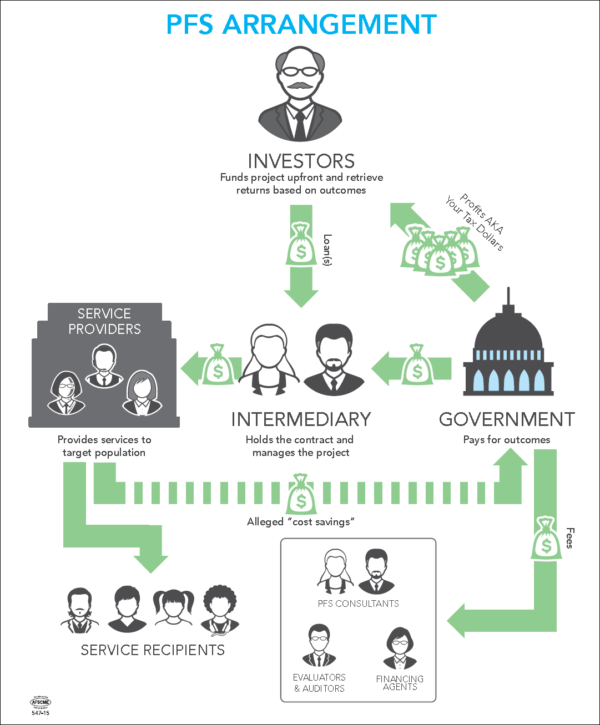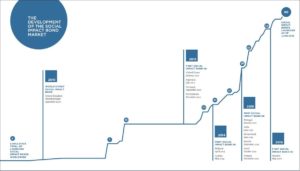Critical PbR issues
A new (December 2015) US guide to evaluating payment by results schemes by a group of think tanks makes for interesting reading.
A guide to evaluating Pay for Success Programs and Social Impact Bonds is skeptical of the claims made for Pay for Success/PbR schemes in the US. The authors, including InthePublicInterest, introduce their report bluntly:
There’s no free lunch. Yet across the country, advocates of Pay for Success (PFS), or Social Impact Bonds (SIBs), serve up this alternative private financing model as a cost-free, risk-free silver bullet to support critical, yet underfunded, public services. As local and state governments rush to pass enabling legislation and strike deals with investors, a closer examination of these schemes is warranted.
The PbR model in the US is mainly a Social Impact Bond approach with financial investment often supplied by banks seeking to make a profit (as well as rich individuals and charitable foundations). This graphic illustrates the process:

Main issues
The report highlights many of the main themes identified in my recent literature review such as the fact that investors and providers may be so concerned about getting returns/being paid that they often do not seek to innovate (a common rationale for PbR schemes) but feel compelled to stick to existing, proven ways of working.
In particular, they emphasise that:
- PFS/PbR schemes may be more costly to taxpayers in the long run — the complexity of many schemes entail transaction costs beyond the loan and interest, such as the cost of legal services, evaluation, programme administration and loan management.
- They can limit the conversation about solutions — initiatives can sometimes focus on how to produce quick results which are easy to measure when often an effective long term response to a complex social problem can involve changing policy as well as service delivery.
- Commissioners must avoid focusing too much on how to get private cash to support social services and ensure that they pay full attention to how the service will be delivered over time.
Finally, the authors highlight four key questions about service delivery which seem relevant to a number of British PbR schemes:
- How will the government ensure the service delivery aims for quality service, and not just on producing the desired outcomes?
2. What influence will investors have over service delivery?
3. Is there a minimum level and type of service that all eligible participants will receive?
4. What are the wages and benefits of the service provider staff?







